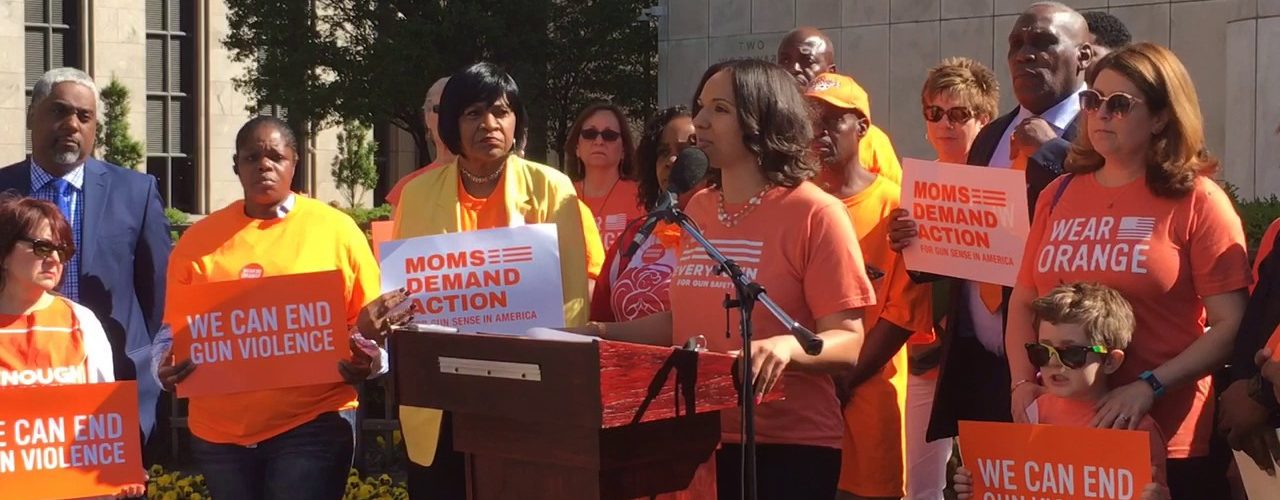
The good news is that violence and crime overall continues to spiral downward in the city, even if that spiral isn’t plummeting downward as quickly as most would prefer. But the widely publicized shooting last week of an off duty Detroit police officer, the result of an unsuccessful robbery attempt which left the officer in critical condition and one of the assailants dead, was a stark reminder that progress does not equal arrival.
Simply put? We’re not there yet. But what may help us get there – and hopefully stay there – is a better understanding of the culture of violence as a public health issue. This process, a coordinated effort between certain public health officials and the police department, focuses not so much on the individual data, or on the necessity for making the punishment fit the crime. Rather, when viewed as a public health issue, violent crime takes on a different appearance requiring a more holistic approach.
The basic idea here is not to coddle or excuse criminals, for those whose reflexive reaction to anything but harsh punishment automatically kicks in at the mere mention of an alternative. The idea here, through fostering a better understanding of the root causes of violence, is prevention. Because the best way to address crime is to stop it before it gets started.
“Violence is really an issue of poverty, but we have to recognize it’s not a genetic predisposition, that there are things we can do and give our young people the opportunity to see that violence doesn’t have to happen,” said Dr. Joneigh Khaldun, Executive Director of the City of Detroit Health Department.
“Just living in poverty alone increases your risk. It increases your risk of mental health trauma, it increases your risk of being both a perpetrator and a victim of violence in the future. [But] if you intervene early on, and there’s data that supports this, you can absolutely decrease the levels of violence.”
After last week’s attack, Willie E. Bell, who serves as chairman of the Detroit Board of Police Commissioners, issued the following powerful remarks in a press statement:
“As a city, we need to summon the strength of character and spirit to say this level of violence is not necessary, and these crimes against one another need to stop.
“This latest unfortunate incident of violence is highlighted because the attempted robbery victim was an off-duty Detroit Police Officer. We pray for his recovery; we pray for his healthy return to his family, to his job, and to all the things that he enjoys in life. It is important to remember that he was running errands – just taking care of personal business like all of us do. And, like all of us going about the chores of daily life, he had every right to be safe and unharmed going to the store. The robber likely saw an ordinary customer, perhaps one like other customers targeted on other occasions; but this time, he sealed his fate by trying to rob someone who was armed and well trained in using a weapon.
“So, as we pray for the health of this police officer, we recognize that we are praying for yet another victim of senseless crime and violence. Detroit as a city is better than these recent months of violence indicate, and we are certainly better as people than these criminal acts indicate.
“People like to say that Detroit is a city of neighborhoods, but really we are a city of neighbors. We could not have survived these past years of upheaval and sacrifice if we did not believe in each other just as much as we believed in our city. We have gone through too much to have our city or our daily lives marred by these senseless acts of crime and violence.”
Khaldoun, who grew up on the city’s east side, said it was the seemingly unceasing level of violence she saw perpetrated against black youth, not only growing up but also in her professional life as an emergency room physician, that prompted her to enter the field of approaching violence as a public health issue that can be stopped.
“My family is from District 3, the eastside of Detroit. So I get it. My family is from places where a lot of folks don’t want to go today,” she said.
“That’s what encouraged to get me involved in public health was the violence that I saw. Literally when I was in emergency when I was in medical school in Philadelphia at University of Pennsylvania at the time, and I was on my trauma surgery rotation and I remember one night when you couldn’t get the body bags zipped up quick enough before there was someone else coming in the door.”
Khaldoun said it’s important to understand that, statistically speaking, most of those bodies had likely been to the emergency room at least several times before due to violent encounters.
“So violence as a public health issue. What does it really mean? It means that there is nothing about young minority males, which tends to be what it is in America – there’s nothing inherent about a young African Amewrican male being violent or carrying a gun. This is not a genetic predisposition to be violent, right? So why do we have this violence issue?
“What if we connected our schools with our mental health services and do some screening? There are so many children who are suffering with these adverse childhood experiences. Trauma in the home. I’m not talking about necessarily physical trauma, but neglect, abuse. They’re all mental health issues. That affects a child and their trajectory in life. So if we could really focus on the youth, and focus on upstream, I think we could really move the needle on violence longterm.”